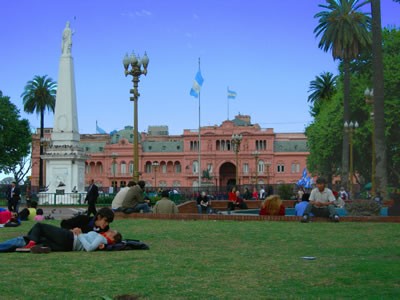Those who come to Argentina to learn the language will find that its interpretation of the Spanish language is every bit as unique as the country itself.
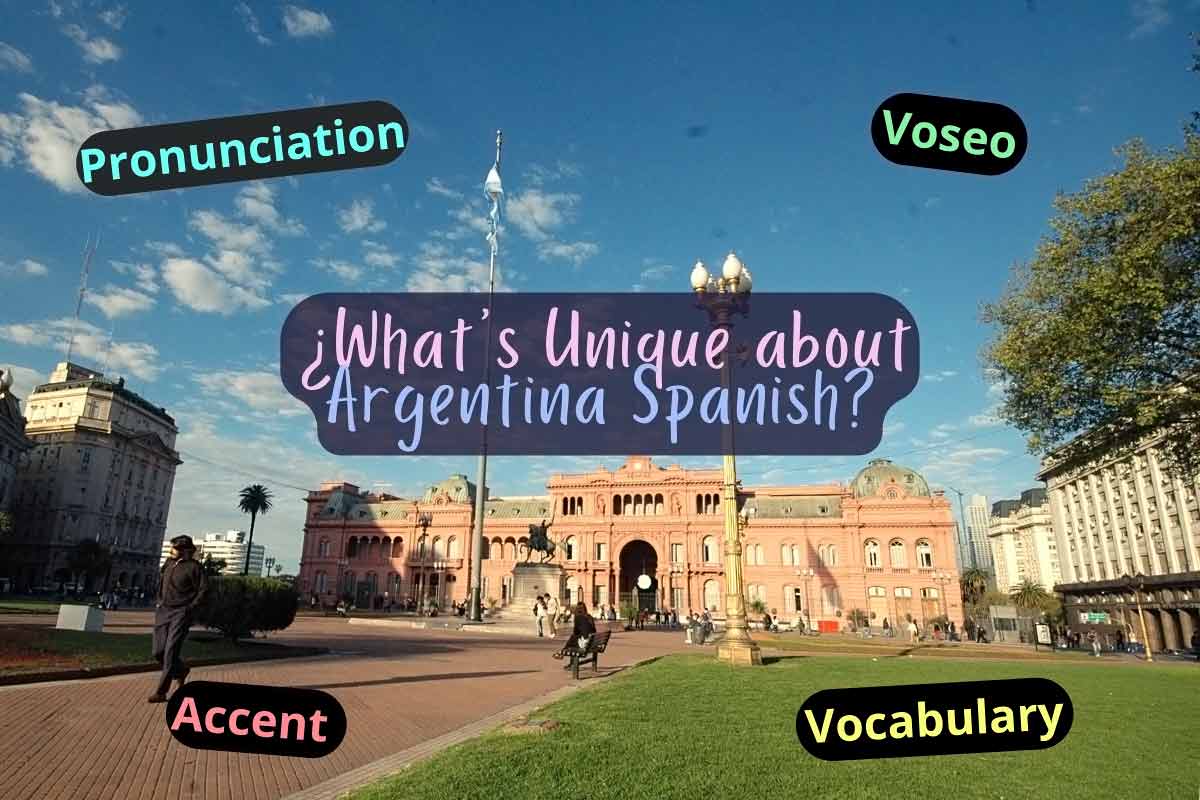
Visitors quickly discover that those textbook Spanish classes can serve as a comfort, but not a compass when navigating the local lingo.
Rioplatense (River Plate) Spanish is a slightly Italian-flavored version of Spanish due to the many Italian immigrants who descended on Argentina at the turn of the 20th century.
The Argentine Accent
Argentines call their Spanish ‘Castellano’ (Castilian) – specifying its regional roots in Castile, Spain.
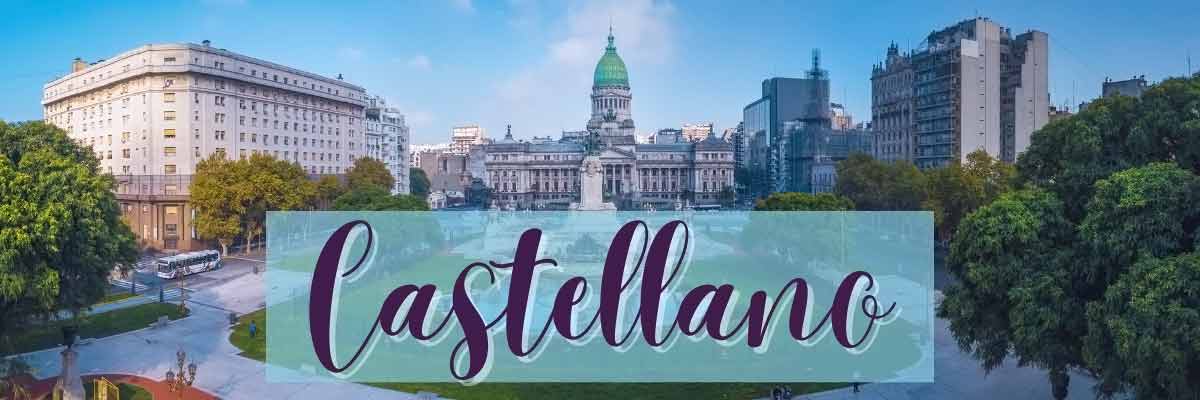
Argentina was rather secluded from the rest of Latin America due to geographical boundaries and geopolitics during over 300 years of Spanish colonization.
As a result, the Spanish spoken in Argentina (and the Rioplatense Spanish spoken in neighboring Uruguay) evolved from the dialect spoken in Castile during the colonial days.
Argentina may have been conquered by Spain, but many Italians landed in droves at the port in La Boca beginning in the late 19th century until well into the twentieth century, which added another new twist to the local language.
The first thing that will jump out at those more familiar with ‘standard Spanish’ is the animated Italian-like accent of the Argentines.
Since many were from different regions of Italian and spoke different dialects of Italian, a pidgin called Cocoliche developed which was a mix of Argentina’s Castilian Spanish with words from different Italian dialects, particularly the Lombardo dialect.
The Italian-like intonation and melodic underscoring of syllables stuck, especially in the River Plate region.
There are distinct accents throughout Argentina though.
The most perceivable accents outside of the River Plate region are in the northern provinces and Córdoba.
Another idiomatic quirk, seen in Santa Fe around the Rosario area and in lower-income communities of metro Buenos Aires is the aspiration of the letter ‘s.’
In that case, you’ll be asked, “De donde so’ vo’?”
Travelers who speak more standard Spanish normally have a harder time understanding than being understood themselves.
The singsong Argentine accent is considered seductive by many native Spanish speakers, so Spanish learners need not worry about picking up the local accent.
Pronunciation
Argentines typically enunciate clearly and also tend to speak loudly (like their Italian cousins). These two things make comprehension easier.
On the other hand, they often speak in rapid machine gun-like spurts, faster than the language-learning brain can process, at first.
As with learning any language, you may get the gist of the conversation and sometimes have to ask people to repeat themselves.
Some locals are eager to earn English and language conversation meetups are easy to find anywhere in the country where expats or foreigners reside.
Pronunciation of ‘ll‘ and ‘y’
The most striking feature of Argentine Spanish is the pronunciation of the ‘ll’ and ‘y’.
Instead of adopting a ‘y’ sound as in the word ‘yonder,’ the ll and y take on a rougher sound that can be likened to the zh in “casual” or “leisure.”
This particularity is very noticeable in Buenos Aires, especially in posher areas of the city (Palermo and Belgrano) and the northern suburbs.
This can make the pronunciation of some words identical to each other — if someone says ‘se cayó’ (it/he/she fell) you will have to extract from the context the meaning because ‘se calló’ (it/he/she got quiet) is pronounced exactly the same way.
This phonetic difference may take some getting used to, but it shouldn’t hinder communication.
➡ Free Trial to Learn Spanish with Rocket Spanish —
The Use of Vos in Argentina
Another unique feature of Argentine Spanish is the Voseo.
Instead of ‘tú,’ as the second-person singular pronoun (the informal form of the word ‘you,’) ‘vos’ is used.
Using the vos form may take a bit of practice, but once you figure out how it works the construction is rather simple.
The conjugations are exactly the same as the tuteo except in the present indicative and with the affirmative commands.
After some initial effort, it turns out to be easier to conjugate using ‘vos‘ because, unlike the ‘tú’ form, there are only three irregular verbs, which are covered below.
How to Conjugate Verbs Using ‘Vos’
When ‘tú’ is used the conjugation of irregular verbs it requires a stem change in the second person form.
With ‘vos‘ no stem change is necessary because the stress or emphasis is on the last syllable (i.e. ‘tienes‘ becomes ‘tenés‘, ‘pides’ becomes ‘pedís.’)
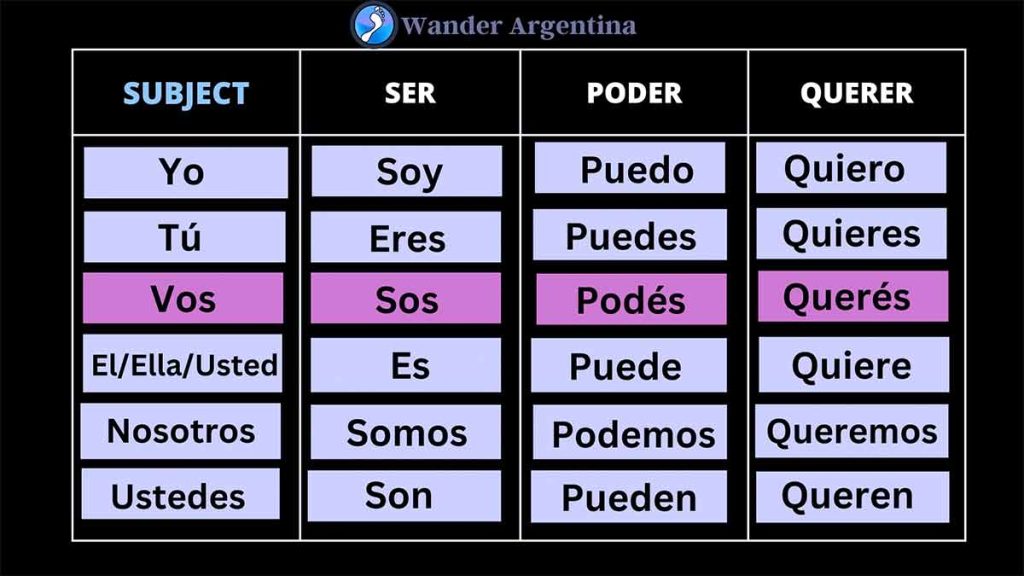
The imperative form using voseo is easy too.
Just remove the ‘r’ from the verb and stress the last syllable.
So instead of saying ‘tú ven’ using ‘vos,’ it’s (vos) ‘vení’ to command someone ‘come.’
To tell someone — like you reading this right now — ‘to think’ in the vos imperative form say, (vos) pensá instead of ‘(tú) piensa.’
Irregular Verbs using ‘vos‘
A great thing about voseo is that there are only three irregular verbs.
To make things even easier, both ‘ir’ and ‘haber’ are conjugated the same as with using ‘tú‘.
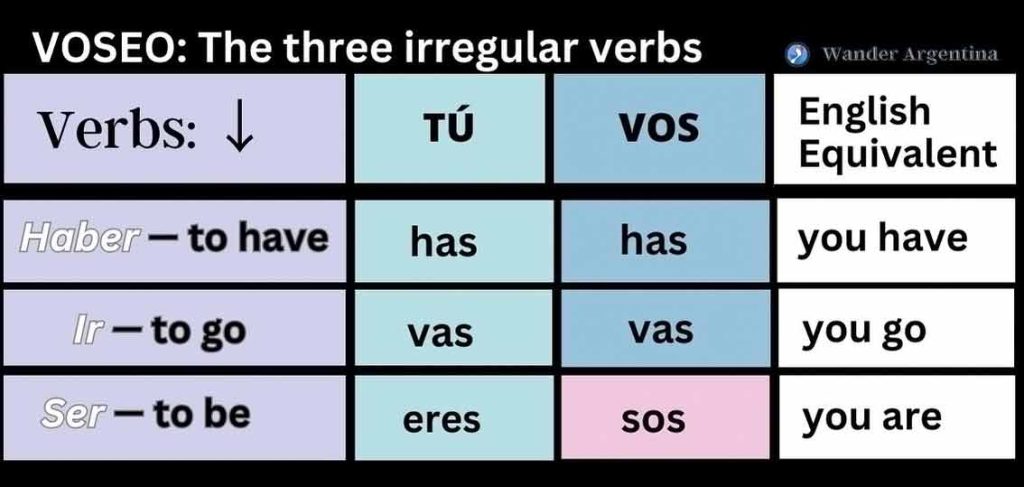
The verb ser (to be) is the one that throws people off: ‘(tú) eres’ becomes ‘(vos) sos.’
¿De Donde Sos? One Question You Gotta Learn!
Travelers to Argentina take note because you will inevitably be asked, “¿De dónde sos? “(video, opens in new window) throughout your stay.
Voseo Pronoun ‘Ti’
Another linguistic phenomenon of voseo is there’s more to it than just switching from ‘tú’ to ‘vos’ as the personal pronoun.
The prepositional pronoun ‘ti,’ also morphs into ‘vos.’
“El regalo es para ti” becomes “El regalo es para vos.”
“Quiero ir al parque contigo” becomes “Quiero ir al parque con vos.”
But no worries, navigating the world voseo prepositional pronouns is not a priority on the Castellano learning journey, as ‘ti‘ is equally understood.
But it’s a distinctive feature that sets voseo apart in terms of how people address one another.
It’s important to note that while ‘vos’ is used for personal and prepositional pronouns, this shift does not extend to object pronouns or possessive pronouns.
The voseo for these pronouns are the same as in tuteo.
So, when venturing into the realm of voseo, keep these distinctions in mind at least while listening, and embrace the variations it brings to the Spanish language.
Travelers will notice that while ‘vos’ is used in the second person in most of Argentina, in the northwest provinces of the country, along the Andes Mountains closer to Chile many people use ‘tú.’
⛔️ Vosotros
Despite using the ‘voseo’ in most of the country, the second person plural pronoun ‘vosotros‘ is not used in Argentina; instead ‘ustedes‘ is always used to address a group.
In fact ‘vosotros‘ is only used only in Spain, while in the rest of the Spanish-speaking world ‘ustedes’ is used in everyday conversation.
Nonetheless, Spain did away with this use of ‘vos’ centuries ago.
Argentines do not tend to use singular, formal ‘you,’ (usted) as frequently as in many other Latin American countries.
While people from Colombia and Ecuador use ‘usted‘ frequently (even to address their dogs!) in Argentina it is reserved mostly for business situations, addressing the elderly and authority figures, and sometimes to jokingly give deference to a friend.
Vocabulary
Throughout much of the country, Argentina’s Castellano adopts a very informal style heavily peppered with lunfardo, the local slang, particularly in Buenos Aires.
Sometimes it is surprisingly vulgar.
The daily vernacular used by Argentine teenagers would probably land kids in big trouble in most other Latin American countries.
Argentine Spanish is colorful and not for the easily offended.
Nicknames emerge from personal characteristics and they aren’t politically correct. Although this is changing among young people anyone of Asian descent is called ‘Chino‘ or ‘China’ (Chinese); overweight people are called simple ‘gordo‘ or ‘gorda‘ (fatty).
As in much of the rest of South America, those with darker skin tones are called ‘negro/a‘ or maybe ‘negrito/a‘ (which is meant to be affectionate as much as the other diminutives).
Anyone from anywhere in Eastern Europe, including Ukraine or the former USSR is called ‘Ruso‘ or ‘Rusa‘ (Russian).
There is a sizeable population of both Ukrainians, and since the war began, Russians residing in Argentina, but they are all called ‘Rusos.’
Americans are called ‘yanquis‘ (Yankees) — even if they’re from the southern U.S., and even Canadians may be confused for their neighbors and be compelled to correct their hosts.
Even those with physical disabilities get nicknames: someone with a limp is called ‘rengo/a‘ particularly because the synonym ‘cojo‘ is the first person singular of a vulgar verb.
There are also many words unique to Argentina ‘Argentinismos‘ — Weird Words You’ll Only Find in Argentina such as the words ‘che‘ ‘birra‘ and ‘boliche.’
→ Improve your reading and listening skills with the Spanish Novel series, intelligently designed for adult language learners at graduated levels.

When it comes to cuisine, Argentina has a whole world of its own culinary terms, largely related to asado (and meat cuts), menus filled with spin-offs of Italian food and some traditional Andean foods.
Learning Spanish in Argentina may be an unusual choice but it’s a good one.
The educators are excellent in Argentina and Spanish classes are affordable here.
There are worse things than picking up an accent many people across Latin America find attractive. The addition of colorful Lunfardo, Argentina’s vocabulary of slang, turns out to be a bonus pack of 5,000+ words to express yourself in your new language.
→ Continue Reading: Lunfardo: Argentina’s Naughty Slang

